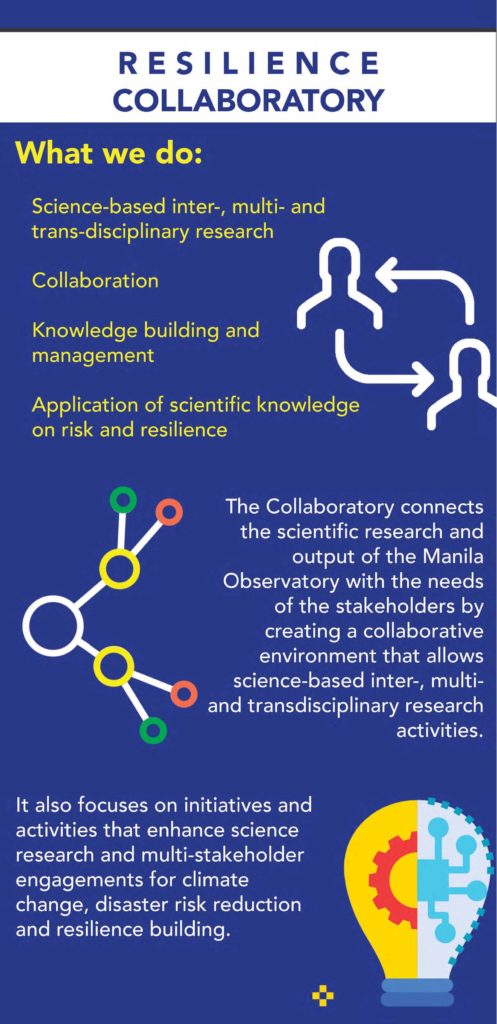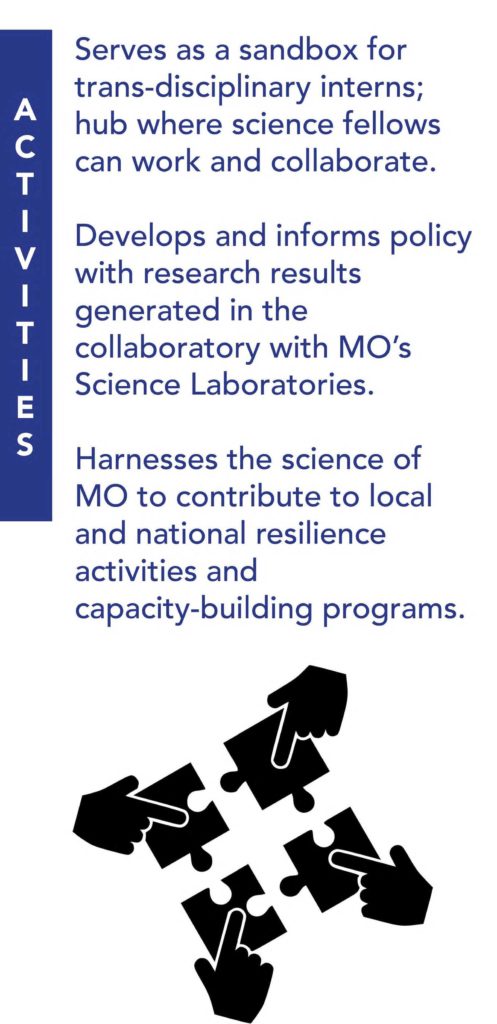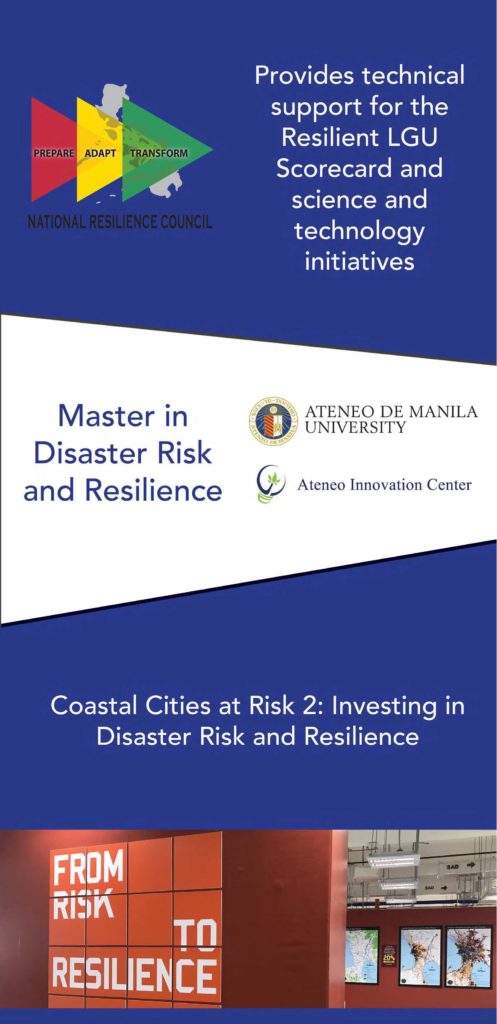 The Resilience Collaboratory runs activities and programs that aim to strengthen the resilience capacities of communities that are exposed to frequent hazards, to address local vulnerabilities, and to support efforts to adapt to disaster risks and climate impacts. The Resilience Collaboratory facilitates collaboration among the core laboratories of the Manila Observatory with a shared goal of delivering useful and usable climate and disaster risk information to the most vulnerable, and initiates trans-disciplinary partnerships with various institutions outside academia especially civil society organizations, and the public and private sectors.
The Resilience Collaboratory runs activities and programs that aim to strengthen the resilience capacities of communities that are exposed to frequent hazards, to address local vulnerabilities, and to support efforts to adapt to disaster risks and climate impacts. The Resilience Collaboratory facilitates collaboration among the core laboratories of the Manila Observatory with a shared goal of delivering useful and usable climate and disaster risk information to the most vulnerable, and initiates trans-disciplinary partnerships with various institutions outside academia especially civil society organizations, and the public and private sectors.
As one of the science-to-impact arms of the Manila Observatory, the Resilience Collaboratory also generates tools to promote the uptake of climate and disaster risk information produced by the research institute at the community and government-level. For example, a coaching and mentoring approach was developed for encouraging participatory risk assessments (see Resilience Toolkit). The Regional Climate Systems laboratory also launched a Climate e-Learning Hub to help end-users better understand the recently published Philippine Climate Extremes Report 2020 .
Approach:
• Trans-disciplinary partnerships: engages policy-makers, decision-makers, communities, academia, civil society
• Action research: facilitates capacity building
Focus areas:
• Participatory risk analysis: mainstreaming CCA-DRR into development planning
• Climate communications: promoting climate information uptake
• Climate action and sustainability: adaptation and mitigation
History
In 2018, under the leadership of Dr. Antonio La Viña and Dr. Gemma Teresa Narisma, the Resilience Collaboratory was created in anticipation of MO’s resilience work.
Shortly thereafter, the Resilience Collaboratory as a science-to-impact arm MO began its work under the Coastal Cities at Risk in the Philippines – Investing in Climate and Disaster Resilience Project (CCARPH), which envisioned a platform for the application of the research, methods and insights from the project.
CCARPH
Coastal cities in the Philippines are highly vulnerable to climate and disaster events. The project aims to enhance the capacity of coastal cities in the Philippines to analyze and understand the complexity and dynamic of climate and disaster risk, and to adapt to such risks through engagement between academic and scientific institutions, private sector, local and national government, and other stakeholders. This will be undertaken through research inputs/tools into the design of disaster resilience plans, responsive to vulnerable populations like women and children, for Metro Manila, Iloilo, and Naga. Project outcomes include innovative solutions in climate and disaster resilience (i) through trans-disciplinary and multi-stakeholder support in the preparation of “Resilience 2022” plans; (ii) by bringing the science of climate and disaster risk and resilience to inform core business of the private sector, government and civil society organizations; and (iii) by supporting the priorities of the Sendai Framework for Disaster Risk Reduction 2015-2030, the APEC Disaster Risk Reduction Framework, the Paris Agreement and Sustainable Development Goals 11 and 13.
LATEST NEWS AND FEATURES








